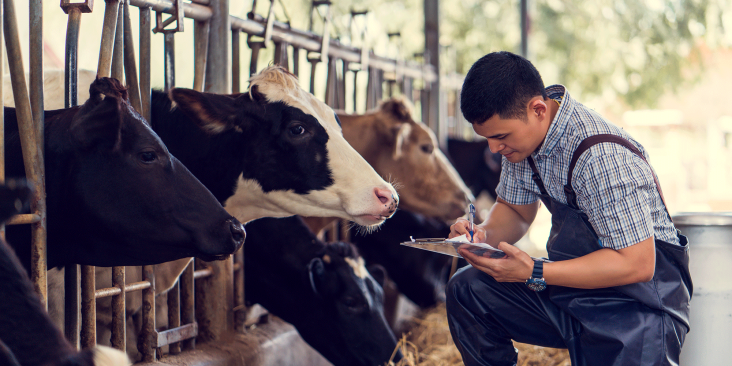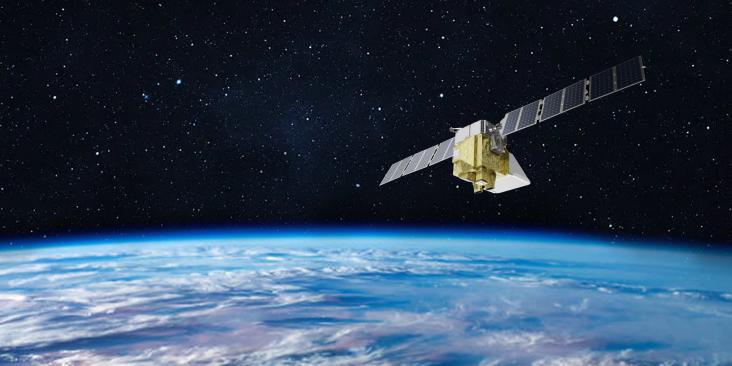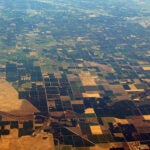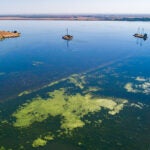
Gathering accurate data as close as possible to the desired impact area of a water management project is a critical part of an effective Monitoring, Evaluation, and Learning program. Here, Avinash Shivji Pande and Lakshmikantha NR — from EDF’s partner WELL Labs — collect data from a recharge pit in Jalna, Maharashtra. Read more about this particular intervention.
As groundwater depletion accelerates amid climate change and growing agricultural demands, integrating Monitoring, Evaluation, and Learning (MEL) into water management strategies can safeguard India’s water security and resilience.
Groundwater has sustained human societies for thousands of years, serving as a critical shared resource. However, the current rate of extraction — driven largely by climate change, population increase, and intensified irrigation — is outpacing recharge rates worldwide. At the same time, groundwater irrigation has proven essential for food security, livelihoods, and poverty alleviation, particularly in countries like India. Agriculture alone consumes roughly 90% of India’s groundwater, not only supporting domestic food security but also making India a major player in global food exports.
This reliance, however, comes at a significant cost. Over-extraction is leading to diminishing societal benefits, reflected in declining agricultural productivity, decreased adaptive capacity at the community level, and worsening water quality. Without effective adaptation and mitigation measures, climate-related water impacts are projected to lower global GDP by mid-century, with the heaviest losses expected in low- and middle-income countries.
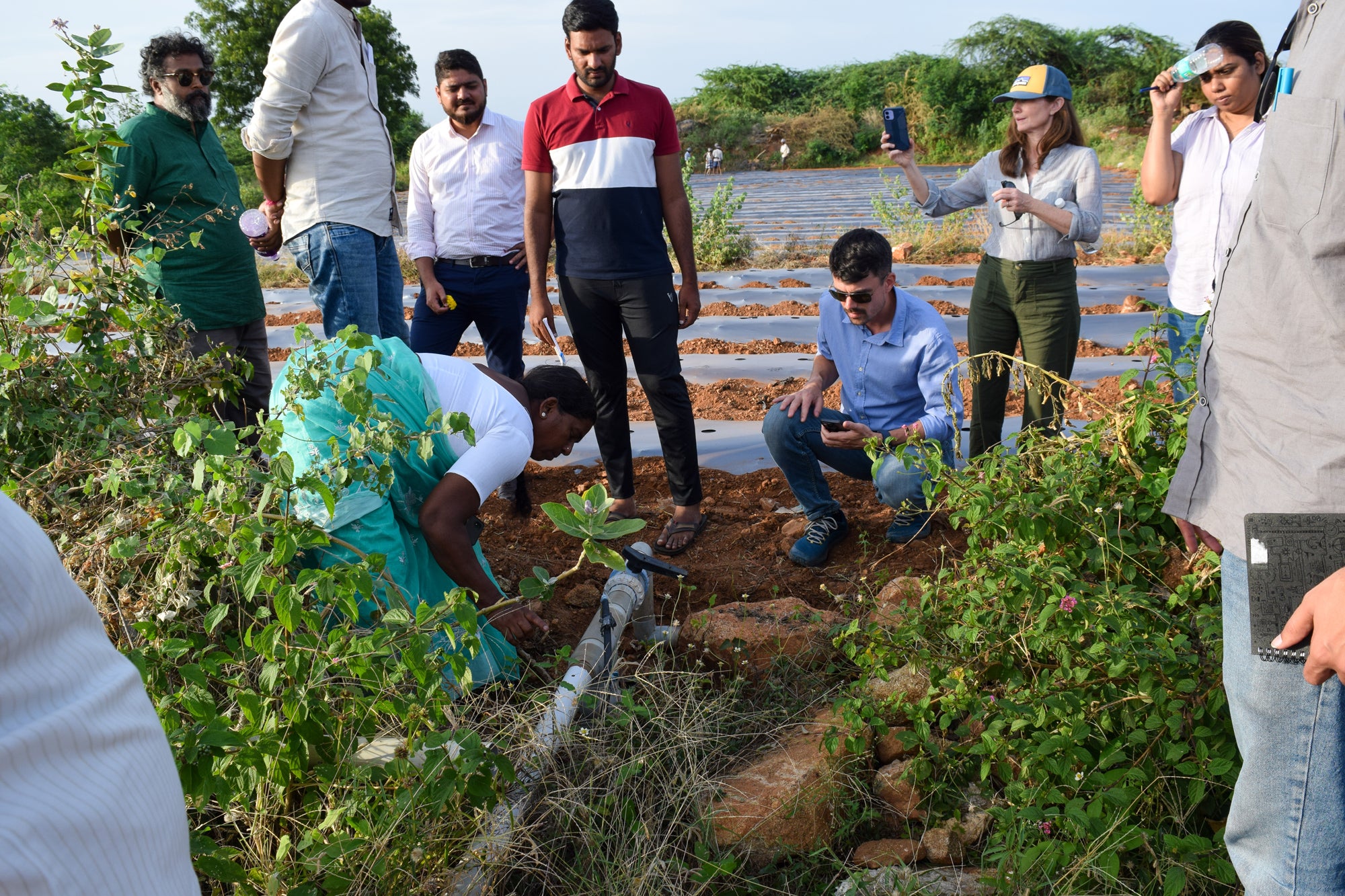
EDF and WELL Labs staff inspect a shared groundwater pump and pipe network in Kadiri, Andhra Pradesh. Farmers in India’s Deccan region face increasing groundwater stress. More about our efforts to support sustainable management in Kadiri and elsewhere.
Recognizing the urgent need for a resilient, water-secure future in India, the government, philanthropic foundations, and community organizations invest billions of dollars annually in initiatives like check dams, farm ponds, and trenches to bolster water security. Despite these substantial efforts, groundwater levels in India continue to decline. Climate change is only deepening the pressure on groundwater systems, further threatening local agricultural production, with potential ripple effects on global food supply chains, international trade, and food prices.
With so much at stake, ensuring investments are directed towards powerful, data-driven water security strategies is imperative. Integrating robust Monitoring, Evaluation, and Learning (MEL) practices into water management can drive transformative change. Effective MEL frameworks enhance governance, enabling philanthropies and community organizations to zero-in on evidence-based solutions that amplify impact and efficiency. By channeling climate funding with precision, we maximize resilience, save critical time, and steward resources responsibly, ensuring communities are equipped to confront the accelerating challenges of water scarcity head-on.
Since 2023, EDF and India-based WELL Labs have partnered on a MEL initiative — informing, and working with, local food producers, community organizations, and private sector corporations to develop resilient groundwater practices. Our collaboration is focused on evaluating groundwater recharge initiatives and will generate essential data for guiding future water interventions, improving year-round groundwater management, and strengthening water access for communities reliant on sustainable resources. Practices that store or save water can extend water availability further into the dry season, improving equity, bolstering income, and enhancing resilience.
The work has already achieved major milestones, including a high-level roundtable during India Water Week 2024. Academics, nonprofit practitioners, funders, and business leaders joined forces to shape organizational MEL strategies, leveraging farmer insights and field data to refine a robust toolbox that will guide water interventions nationwide. This is just the beginning, with more impactful advancements in groundwater resilience and sustainability on the horizon. For further insights and next steps from the roundtable, see here.
For further information on MEL, please see our one-page MEL explainer and linked resources below. For an in-depth exploration of the key themes and takeaways from the national roundtable on MEL, please see this blog post from our partner WELL Labs.
What is Monitoring, Evaluation, and Learning?
Monitoring, Evaluation, and Learning (MEL) is a systematic approach to track, assess, and learn from interventions and broader social-environmental trends. Monitoring involves gathering system data; Evaluation assesses this data to understand how outcomes perform against key goals; and Learning explores how system interactions influence processes and human behavior, and why particular outcomes emerge.
How does this work in practice?
- Monitoring provides information on how the system is being impacted, drawing from data sources closest to the intervention’s effects (farmers, community organizations, census data, etc.).
- Evaluation assesses the data to determine the extent to which the intervention achieved its intended goals.
- Learning reveals how interventions impact systems, offering insights for continuous improvement and adaptation across contexts or geographies.
MEL in Action
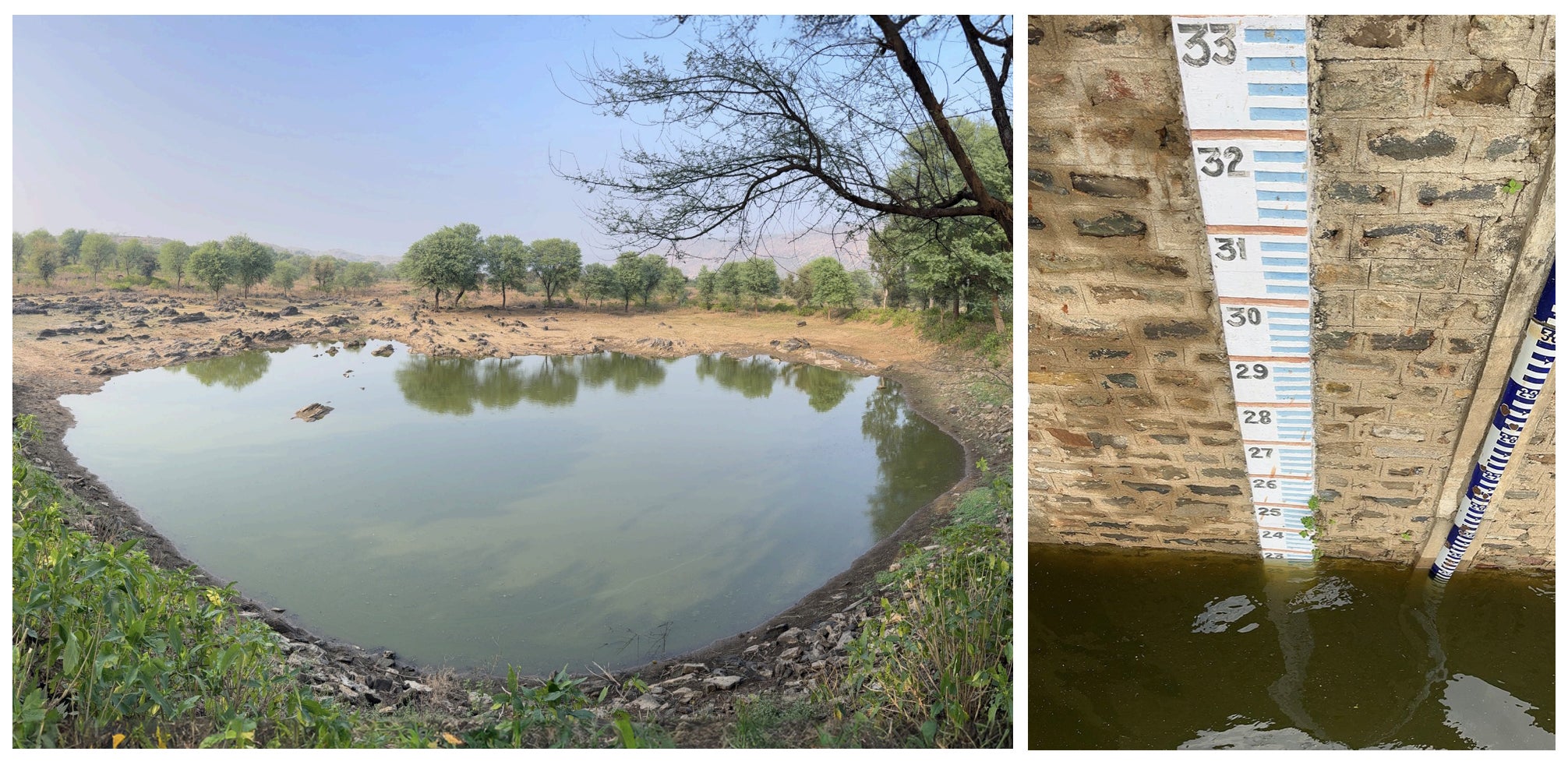 Tarun Bharat Sangh, an NGO based in western India, used a MEL approach to refine a critical water conservation effort. Using a combination of gauging and photography, the team was able to improve:
Tarun Bharat Sangh, an NGO based in western India, used a MEL approach to refine a critical water conservation effort. Using a combination of gauging and photography, the team was able to improve:
- decisions on desilting, structure sizing and placement
- estimations on size-to-recharge ratios
- overall water budgeting, including runoff ratio and recharge rate
Additional Resources:

